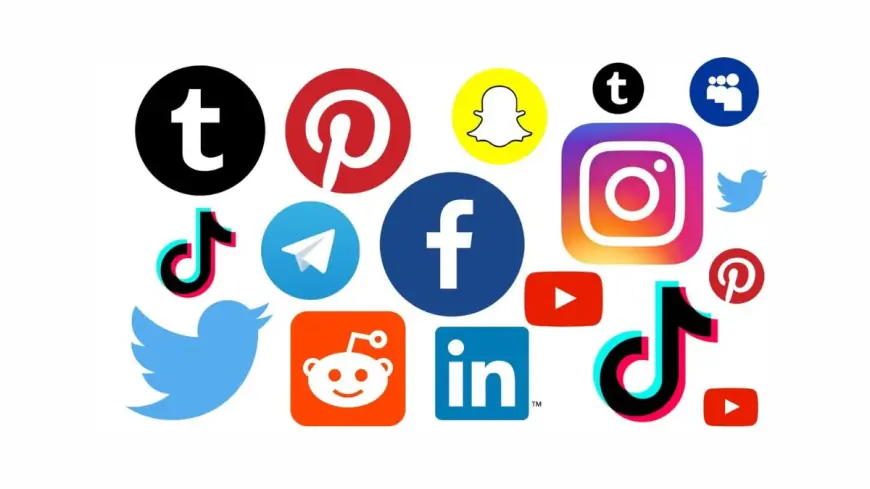An Overview of Online Marketing

In the digital era's ever-evolving landscape, online marketing has become an essential tool for businesses to reach their audiences, drive sales, and build lasting relationships.
This form of marketing, often called digital marketing, leverages the internet and digital channels to connect brands with potential customers effectively and efficiently.
Here's a comprehensive look at what online marketing entails, its strategies, benefits, and significance in today’s world.
What is Online Marketing?
Online marketing refers to any efforts to promote products, services, or brands using the internet. It encompasses various strategies and tools, from search engine optimization (SEO) and social media marketing to email campaigns and content marketing.
The beauty of online marketing lies in its ability to reach a global audience with precision.
Unlike traditional marketing methods, which often involve significant costs and limited targeting, online marketing allows businesses to engage specific demographics based on behavior, interests, and location.
Core Strategies of Online Marketing
1. Search Engine Optimization (SEO)
SEO involves optimizing a website to rank higher in search engine results pages (SERPs). By targeting keywords relevant to their business, companies can attract organic traffic from users actively searching for their products or services.
2. Content Marketing
Content is the backbone of online marketing. High-quality, relevant content—such as blogs, videos, infographics, and e-books—helps businesses educate their audience, build authority, and foster trust.
3. Social Media Marketing
Platforms like Facebook, Instagram, LinkedIn, and Twitter offer unparalleled opportunities to engage with audiences. Social media marketing allows businesses to run targeted ads, share content, and interact with followers directly.
4. Pay-Per-Click Advertising (PPC)
PPC involves placing paid ads on platforms like Google Ads or social media networks. Advertisers pay a fee each time their ad is clicked, making it a cost-effective way to drive traffic quickly.
5. Email Marketing
Despite the rise of new platforms, email remains a powerful tool for nurturing leads and retaining customers. Personalized email campaigns help businesses deliver tailored content directly to their audience’s inboxes.
6. Affiliate Marketing
In affiliate marketing, businesses partner with individuals or companies (affiliates) who promote their products in exchange for a commission on sales. It’s an effective way to expand reach without upfront costs.
Benefits of Online Marketing
-
Global Reach: Online marketing removes geographical barriers, enabling businesses to connect with customers worldwide.
-
Cost-Effective: Digital campaigns often cost less than traditional methods while delivering measurable results.
-
Targeted Approach: Advanced tools allow marketers to identify and engage specific audience segments based on detailed insights.
-
Measurable Results: Analytics tools provide real-time data on campaign performance, allowing businesses to refine their strategies.
-
Increased Engagement: Interactive content and platforms encourage two-way communication between businesses and customers.
-
Scalability: Whether you’re a small business or a large corporation, online marketing campaigns can be scaled to fit your budget and goals.
The Role of Analytics in Online Marketing
One of the defining features of online marketing is the ability to track and measure performance. Tools like Google Analytics, social media insights, and CRM systems provide valuable data on user behavior, campaign ROI, and website performance.
For instance, a business running an SEO campaign can track keyword rankings and organic traffic, while a PPC campaign can measure cost-per-click (CPC) and conversion rates. This data-driven approach allows businesses to optimize their efforts continually.
The Future of Online Marketing
As technology continues to advance, the future of online marketing looks even more promising. Here are a few trends to watch:
-
Artificial Intelligence (AI): AI-driven tools like chatbots and recommendation engines are enhancing customer experiences and streamlining marketing processes.
-
Voice Search Optimization: With the rise of virtual assistants like Alexa and Siri, businesses are adapting their SEO strategies for voice search.
-
Video Content: Short videos, live streams, and interactive content are becoming increasingly popular for engaging audiences.
-
Personalization: Hyper-targeted marketing campaigns using AI and data insights are creating personalized experiences for consumers.
Conclusion
Online marketing is no longer optional—it’s a necessity for businesses aiming to thrive in the digital age. By adopting the right strategies and leveraging advanced tools, companies can connect with their target audience, build brand loyalty, and achieve sustainable growth.












